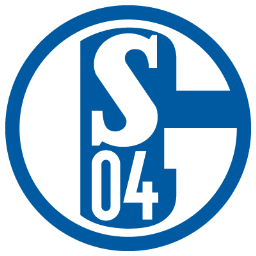Gloom in Schalke, Hertha on a high in tale of two cities
 Hamburg - In the Ruhr area city of Gelsenkirchen, they've been waiting 50 years. In Berlin, it's been even longer.
Hamburg - In the Ruhr area city of Gelsenkirchen, they've been waiting 50 years. In Berlin, it's been even longer.
Passions run high in the former, one of the traditional heartlands of German football, where a pall of gloom hangs over Schalke 04 after what is turning out to be a disappointing Bundesliga season.
Another disappointing season, one could say, for despite huge ambitions - and a huge outlay on new players - Schalke's last league title was in 1958, before the Bundesliga was formed in 1962.
Meanwhile in the German capital, where people have often been ambivalent about their football team, things are looking up.
Hertha Berlin, whose recent history has been one of massive underachievement and near financial ruin, are heading for the best first-half of the season in the club's history.
Third in the table behind Hoffenheim and Bayern Munich, another three points would achieve that feat - and those points could well come against Schalke on Saturday in the penultimate match before the winter break.
It would b "an historic event," says general manager Dieter Hoeness, before warning anyone against carried away.
"Everyone has to be clear that we haven't achieved anything yet. I'm only interested in us continuing to play with the same passion and discipline. Everything else will take care of itself," he said.
Hertha were last a power in the early 1930s when they won the German title in 1930 and 1931.
In the 1980s they virtually vanished from the football landscape with a spell in the amateur third division.
The 1990s were little better with six years spent in the second division, playing to crowds of just a few thousand in the cavernous Olympic Stadium, but the last 10 years have seen Hertha established in the top flight with home crowds averaging above 40,000.
Schalke can point to more success over the last decade. They were UEFA Cup winners in 1997 but the coveted Bundesliga title still eludes them after three runners-up positions in the last seven years.
One factor has linked both clubs: for many seasons neither have had a settled coaching team in place. Hertha have had half a dozen coaches in the last five years, while Schalke have gone through nine, including interim trainers, since the 2002-03 season.
Hertha's hopes are now with Lucien Favre, a former Swiss international who won titles with Zurich and Basel before heading to Berlin the summer of last year.
Under Favre, 51, Hertha are gradually reforming a team which for a long time had overly depended on individual players and as a result lacked the consistency to mount any serious challenge in the league.
Recent signings have been a success as Hertha have beefed up the goalscoring potential from midfield.
Serbian Gojko Kacar, who arrived in January, and the Brazilian Cicero, a summer signing, have 10 goals between them. Kacar came from Novi Sad for 3 million euro while Cicero is on a loan deal from Fluminense with a four-year purchase option for Hertha.
With Ukrainian striker Andriy Voronin picked up from Liverpool in another loan arrangement, Hertha are less reliant on enfant terrible Marko Pantelic, who found himself suspended earlier this season for missing training.
To his annoyance, Pantelic has lately found himself on the bench, but the Serbia striker has reconciled himself with the coach after coming on to head a late winner in Friday's 2-1 victory over Cologne.
Schalke were also hoping a change of coach would bring fresh fortune after Dutchman Fred Rutten this season replaced Mirko Slomka, who was sacked in April.
Schalke have spent club-record sums on Dutch midfielder Orlando Engelaar and Peruvian striker Jefferson Farfan, but neither have yet won over the huge Schalke following.
"We want to see you fight," the team's supporters sung in their last two matches - both 2-0 defeats to Manchester City in the UEFA Cup and VfB Stuttgart.
Against City, die-hard fans waved euro notes - apparently signalling it was all a waste of money - and jeered club manager Andreas Mueller whom they have made the scapegoat for the crisis.
Slomka himself now says Mueller's failed player buys were what ultimately cost him his job.
"I was always under the impression that Schalke want to be a team that is known for playing beautiful football, but the strength of this team is in the prevention of goals. Where are the players who have the technique needed for a quick short passing game?" he said in a German newspaper interview.
Mueller has admitted that some purchases - Carlos Grossmueller, Albert Streit, Ze Roberto and Vicente Sanchez - have not fulfilled expectations, but Engelaar and Farfan need more time.
"The change from Mirko Slomka to Fred Rutten is taking longer than we expected but in the long run Fred will have success with his detailed way of working," he told Bild am Sonntag.
Given Schalke's history of dismissing coaches, the question is how long 45-year-old Rutten has in the job.
Rutten now has a crunch visit to his old club Twente Enschede on Wednesday in the UEFA Cup. Defeat could plunge Schalke into a real crisis even before Saturday's visit by Hertha Berlin.
Fellow Dutchman Huub Stevens, Schalke coach between 1996 and 2002, is already being mentioned in the German media as a possible successor.
Stevens, currently at PSV Eindhoven, also happens to be a former Hertha coach - he spent a season and a half in Berlin before getting the sack in December 2003. (dpa)